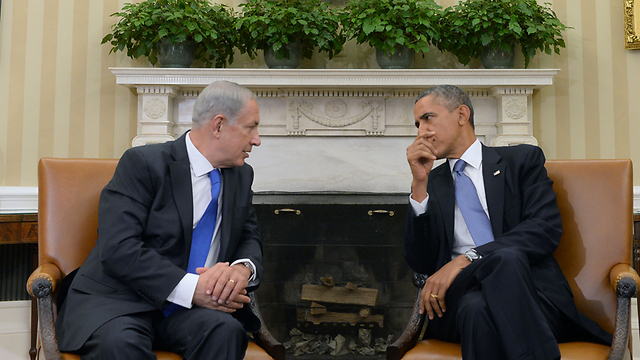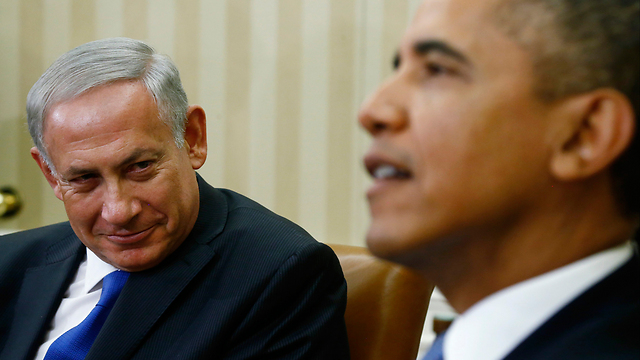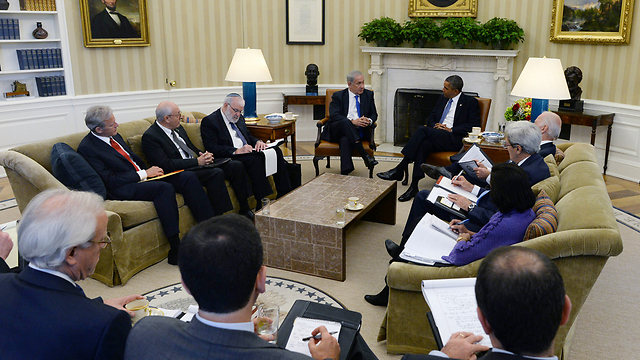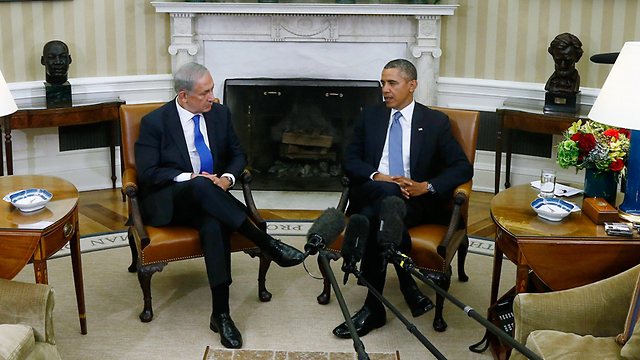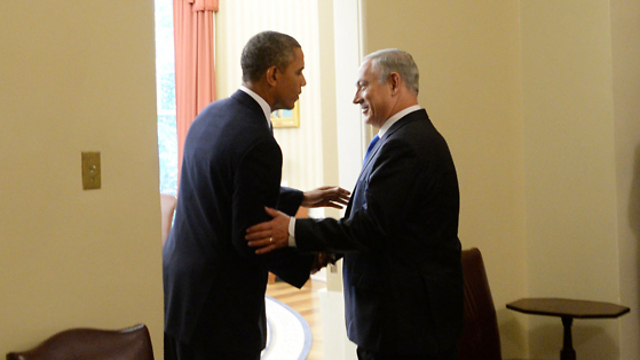WASHINGTON – US Vice President Joe Biden spoke Wednesday at an annual J Street conference held in Washington, saying that a nuclear Iran will cause existential damage to Israel.
Biden added that he and President Obama were committed to the security of Israel, and would not allow Iran to hold nuclear weapons. Biden said the powerful sanctions have a crucial impact in Tehran.
Related stories:
- Obama, Netanyahu agree on Iran
- Peres: All options open on Iran
- Kerry: Relations with Iran can improve fast
"A nuclear-armed Iran would pose an existential threat to Israel, an unacceptable danger to world peace and security, including the likelihood of a nuclear arms race in the Middle East, making everyone less secure. That's why the president rallied the whole world, even though skeptics thought it would not work, to get a UN Security Council behind the most effective sanction regime in all of history to make it absolutely clear that we will not tolerate a nuclear-armed Iran. We will not allow them to possess nuclear weapons," he said.
Biden stressed Iran had a choice – it can suffer deepening economic sanctions or negotiate its way back into the global community and economy: "These sanctions have had a profound impact on Iran's economy and they have crystallized for the Iranian people as well as the leadership that they have to make a very basic decision: Do they want to continue and deepening international isolation and all the negative consequences that flow from that, or do they want to negotiate their way back into the global economy and the global community?"
According to the vice president, the US does not know whether Iran is willing to do what is necessary to resolve concerns about its nuclear program.
Biden spoke Monday to J Street, a group promoting a two-state solution for the Israel-Palestinian conflict, shortly after he and President Obama met with Israeli Prime Minister Benjamin Netanyahu at the White House.
He added this moment may offer the best opportunity for Israeli-Palestinian peace, as both sides want a moderate, sustainable outcome as security in the broader Middle East deteriorates.
"The Palestinian- Israeli issue involves the least ideological and the least sectarian group of Arabs in the entire Middle East. That's why why it's important that we use our good offices to bring both sides together as we have, toward a two-state solution for two peoples - Israel as a secure Jewish state and a homeland for the Jewish people worldwide, and a state of Palestine as a homeland for the Palestinian people," he told the conference.
"Each state enjoying security, self-determination and mutual recognition. I've been in the region, like you, many, many times. I remain absolutely convinced that that's the desire of the vast majority of Israelis and the vast majority of Palestinians."
Also Monday, Netanyahu met with US Secretary of State at the White. Secretary Kerry reiterated the US' commitment to Israel.
Earlier, Netanyahu met with Obama, who said that regarding the issue of nuclear talks with Iran, no options were off the table, including military action. Obama said Tehran must prove its sincerity with actions, not just words.
Signs of US-Iranian rapprochement have rattled Israel, which accuses Iran of trying to buy time and get out from under tough international sanctions while it seeks to develop nuclear weapons. Iran denies it is working toward an atomic bomb.
Netanyahu, whose aides had said he would tell Obama in private not to trust Rohani's charm offensive, signaled grudging acquiescence to Obama's outreach to Iran. But he appeared to demand that Tehran offer immediate concessions by suspending sensitive nuclear projects or else face even greater international pressure.
AP, Reuters contributed to this report
- Receive Ynetnews updates
directly to your desktop














